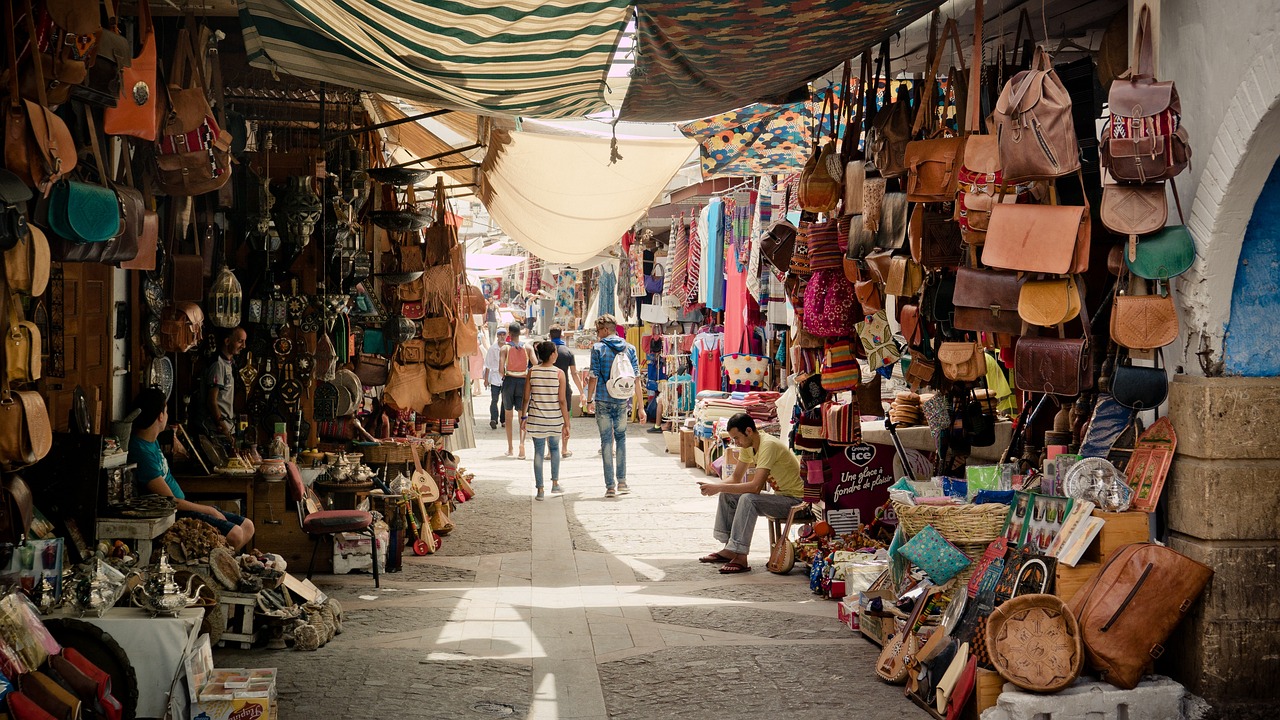Morocco Video
Navigating Local Taxes and Business Regulations in Morocco
Morocco is a country known for its rich history, vibrant culture, and bustling markets. If you are considering starting a business in Morocco or expanding your existing business to the country, it is important to understand the local taxes and business regulations. This article will guide you through the various aspects of navigating local taxes and business regulations in Morocco, providing you with the information you need to ensure compliance and success.
Business Registration and Licensing
Before starting a business in Morocco, it is necessary to register your company and obtain the required licenses and permits. The process typically involves the following steps:
- Choose a Business Structure: Determine the appropriate legal structure for your business, such as a sole proprietorship, partnership, or limited liability company (LLC). Each structure has its own requirements and implications for taxation and liability.
- Reserve a Business Name: Verify the availability of your desired business name with the Ministry of Industry, Trade, and Green and Digital Economy. If the name is available, you can reserve it for a fee.
- Prepare the Necessary Documents: Gather the required documents, which may include a copy of your passport, proof of address, business plan, and financial statements.
- Submit the Application: Submit your completed application, along with the required documents and fees, to the appropriate authorities. The application will be reviewed, and if approved, you will receive your business license.
Tax Obligations for Businesses
Once your business is up and running in Morocco, it is important to understand your tax obligations. The tax system in Morocco is based on the principle of territoriality, meaning that businesses are subject to taxation on their Moroccan-source income. Here are some key tax obligations for businesses in Morocco:
- Corporate Income Tax: Businesses in Morocco are subject to corporate income tax on their profits. The current corporate income tax rate is 31%, with certain exemptions and deductions available for specific industries and activities.
- Value Added Tax (VAT): VAT is a consumption tax levied on the sale of goods and services. The standard VAT rate in Morocco is 20%, with reduced rates of 10% and 7% applicable to certain goods and services.
- Withholding Tax: If your business makes payments to non-residents, you may be required to withhold tax on these payments. The withholding tax rates vary depending on the type of income and the recipient’s country of residence.
- Social Security Contributions: Employers in Morocco are required to contribute to the country’s social security system. The contribution rates depend on the employee’s salary and are shared between the employer and the employee.
Import and Export Regulations
If your business involves importing or exporting goods to or from Morocco, it is important to familiarize yourself with the country’s import and export regulations. Here are some key points to consider:
- Customs Duties: Goods imported into Morocco are generally subject to customs duties, which vary depending on the type of goods and their origin. It is important to determine the applicable customs duties for your products to properly calculate your costs.
- Import Licenses: Certain goods may require an import license or permit before they can be brought into Morocco. Check the specific regulations for your products to ensure compliance.
- Export Documentation: When exporting goods from Morocco, you may need to provide various documents, such as a commercial invoice, packing list, and certificate of origin. Familiarize yourself with the required documentation to avoid any delays or issues.
- Restricted and Prohibited Goods: Some goods are restricted or prohibited from being imported or exported. Make sure your products comply with the regulations to avoid any legal consequences.
Employment Regulations
If you plan to hire employees in Morocco, it is important to understand the country’s employment regulations. Here are some key points to consider:
- Employment Contracts: Employment contracts in Morocco can be either written or verbal, but it is recommended to have written contracts to clearly define the terms and conditions of employment.
- Working Hours and Leave: The standard working week in Morocco is 44 hours, with a maximum of 48 hours including overtime. Employees are entitled to paid annual leave, sick leave, and maternity/paternity leave as per the labor law.
- Minimum Wage: Morocco has a national minimum wage, which is reviewed annually. Make sure to comply with the minimum wage requirements when setting salaries for your employees.
- Social Security: Employers are required to contribute to the social security system on behalf of their employees. The contributions cover various benefits, including healthcare, pensions, and unemployment insurance.
Intellectual Property Rights
Protecting your intellectual property is essential for any business. In Morocco, intellectual property rights are governed by laws and regulations that provide protection for trademarks, patents, copyrights, and industrial designs. Consider the following:
- Trademark Registration: If you have a unique brand name, logo, or design, it is advisable to register it as a trademark to prevent others from using it without permission.
- Patent Protection: If your business involves creating new inventions or innovative processes, consider obtaining patent protection to prevent others from using your ideas without authorization.
- Copyright Protection: Copyright protection automatically applies to original literary, artistic, and creative works. However, registering your copyrights provides additional legal protection.
- Enforcement of Intellectual Property Rights: In case of infringement or unauthorized use of your intellectual property rights, you can take legal action to enforce your rights and seek damages.
Local Government Regulations
In addition to national regulations, businesses operating in Morocco must comply with local government regulations. Local regulations may vary depending on the region, city, or municipality where your business is located. Here are some aspects to consider:
- Business Permits and Licenses: Local governments may have additional permits or licenses that businesses need to obtain for specific activities or locations. Check with the local authorities to ensure compliance.
- Zoning and Land Use: Local regulations govern zoning and land use, determining where certain types of businesses can operate. Ensure that your business location is zoned appropriately for your industry.
- Health and Safety Regulations: Local governments enforce health and safety regulations to ensure businesses provide a safe working environment for employees and customers. Comply with these regulations to avoid penalties or closures.
- Environmental Regulations: Businesses must adhere to environmental regulations to minimize their impact on the environment. This may include waste management, pollution control, and resource conservation measures.
Conclusion
Navigating local taxes and business regulations in Morocco is crucial for the success of your business. By understanding the registration process, tax obligations, import and export regulations, employment laws, intellectual property rights, and local government regulations, you can ensure compliance and create a solid foundation for your business in Morocco. Stay informed, seek professional advice when needed, and always stay updated with any changes in the regulatory landscape.
Morocco Image 1:

Morocco Image 2:

Morocco Image 3:

References:
- Ministry of Industry, Trade, and Green and Digital Economy: www.industrie.gov.ma
- Moroccan General Directorate of Taxes: www.tax.gov.ma
- Moroccan Customs Administration: www.douane.gov.ma
- Moroccan Ministry of Labor and Professional Integration: www.emploi.gov.ma
- Moroccan Office of Industrial and Commercial Property: www.ompic.org.ma
- Moroccan Ministry of Interior: www.interieur.gov.ma


